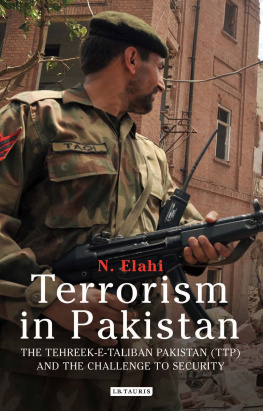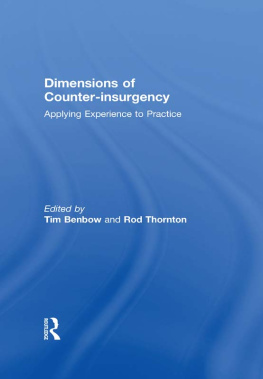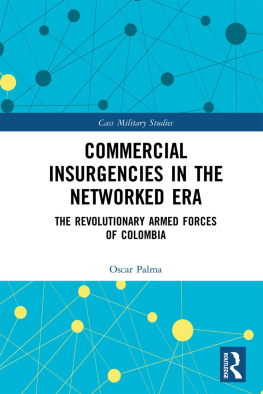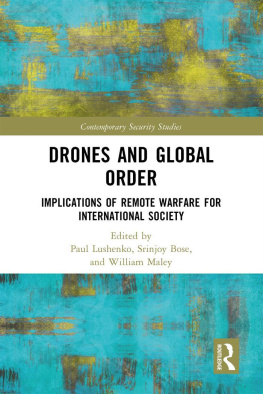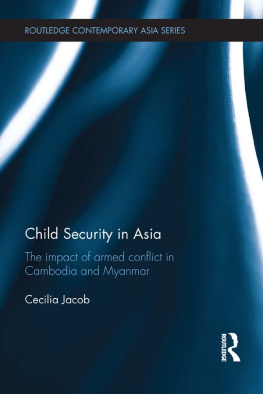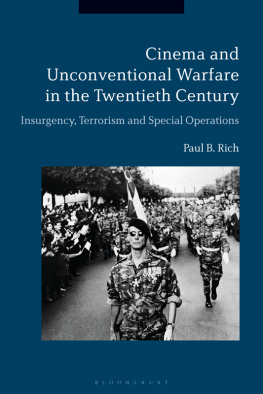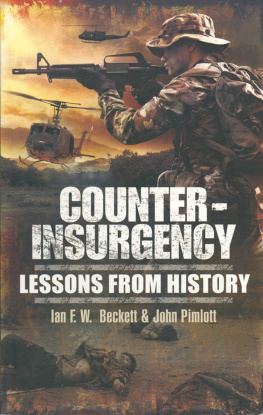
Global Insurgency and the Future of Armed Conflict
Global Insurgency and the Future of Armed Conflict examines the meaning of the rising tide of terrorism and guerrilla warfare, which increasingly dominates world-wide military planning. After the 1991 war with Iraq, it seemed that the Revolution in Military Affairs would assure the United States and its allies of ever greater military dominance. However, rapid victories like the toppling of the Afghan Taliban in 2001 and Saddam Hussein in 2003 now seem like isolated events in a long struggle. For the first time since the Vietnam War ended, the problems of insurgency have leapt to the top of the international security agenda. Coalition forces in Afghanistan and Iraq are bogged down by insurgency, while virtually every country is struggling to ensure its domestic safety against terrorist threats.
In this edited book, some leading advocates of Fourth-Generation Warfare, led by T.X. Hammes and Bill Lind, maintain that irregular warfare is evolving into the dominant form of conflict. However, other strategic thinkers, such as Lawrence Freeman and Antulio Echevarria, argue that the novelty of irregular warfare has been exaggerated. Others examine the lessons of warfare in Afghanistan and Iraq, and the ability of military organizations to deal with the new challenge. Case studies from the United States, India, Israel, NATO and others reveal military thinkers working at the limits of their trade to adapt old institutions and assumptions to address the rising challenge.
Terry Terriff is Reader in International Security in the Department of Political Science and International Studies at Birmingham University, UK. Aaron Karp is Instructor of Political Science at Old Dominion University, Virginia. He is co-editor of the journal Contemporary Security Policy. Regina Karp is Associate Professor at Old Dominion University, Virginia. She is co-editor of the journal Contemporary Security Policy.
Routledge global security studies
Series editors: Aaron Karp, Regina Karp and Terry Terriff
1 Nuclear Proliferation and International Security
Edited by Sverre Lodgaard and Morten Bremer Maerli
2 Global Insurgency and the Future of Armed Conflict
Debating fourth-generation warfare
Edited by Terry Terriff, Aaron Karp and Regina Karp
Global Insurgency and the Future of Armed Conflict
Debating fourth-generation warfare
Edited by
Terry Terriff, Aaron Karp and Regina Karp

LONDON AND NEW YORK
First published 2008
by Routledge
2 Park Square, Milton Park, Abingdon, Oxon OX14 4RN
Simultaneously published in the USA and Canada
by Routledge
270 Madison Ave, New York, NY 10016
Routledge is an imprint of the Taylor & Francis Group, an informa business
This edition published in the Taylor & Francis e-Library, 2010.
To purchase your own copy of this or any of Taylor & Francis or Routledges collection of thousands of eBooks please go to www.eBookstore.tandf.co.uk.
2008 Selection and editorial matter, Terry Terriff, Aaron Karp and
Regina Karp; individual chapters, the contributors
All rights reserved. No part of this book may be reprinted or reproduced or
utilized in any form or by any electronic, mechanical, or other means, now
known or hereafter invented, including photocopying and recording, or in
any information storage or retrieval system, without permission in writing
from the publishers.
British Library Cataloguing in Publication Data
A catalogue record for this book is available from the British Library
Library of Congress Cataloging in Publication Data
Global insurgency and the future of armed conflict: debating fourth-generation warfare/edited by Terry Terriff, Aaron Karp and Regina Karp.
p. cm.
Includes bibliographical references and index.
1. Counterinsurgency. 2. War on Terrorism, 2001I. Karp, Aaron. II.
Cowen Karp, Regina. III. Terriff, Terry, 1953
U241.G56 2007
355.02'18dc22
2006101900
ISBN 0-203-08927-8 Master e-book ISBN
ISBN10: 0-415-41357-5 (hbk)
ISBN10: 0-203-08927-8 (ebk)
ISBN13: 978-0-415-41357-2 (hbk)
ISBN13: 978-0-203-08927-9 (ebk)
Contents
AARON KARP, REGINA KARP, AND TERRY TERRIFF
|
WILLIAM S. LIND, COLONEL KEITH NIGHTENGALE (USA), CAPTAIN JOHN F. SCHMITT (USMC), COLONEL JOSEPH W. SUTTON (USA) AND LIEUTENANT COLONEL GARY I. WILSON (USMCR)
|
THOMAS X. HAMMES
|
JAMES J. WIRTZ
|
EDWARD LUTTWAK
|
MARTIN VAN CREVELD
|
ANTULIO J. ECHEVARRIA II
|
MICHAEL EVANS
|
JOHN FERRIS
|
LAWRENCE FREEDMAN
|
ROD THORNTON
|
DAVID S. SORENSON
|
WILLIAM S. LIND
|
THOMAS X. HAMMES
|
COLONEL CHET RICHARDS (USAF, RETIRED), LIEUTENANT-COLONEL GREG WILCOX (USA, RETIRED), AND COLONEL G.I. WILSON (USMC, RETIRED)
|
WARREN CHIN
|
AVI KOBER
|
PAUL JACKSON
|
F.G. HOFFMAN
|
THOMAS X. HAMMES
|
DONALD A. MACCUISH
|
COLONEL DR. FRANS OSINGA
|
DIEGO A. RUIZ PALMER
|
RAJESH RAJAGOPALAN
|
TERRY TERRIFF, REGINA KARP AND AARON KARP
|
Preface
If there is one theme that typifies the changing character of war in the twenty-first century, it is complexity and non-linearity. Hence, it is no surprise that the origins of this volume are complex as well, to say the least. With three editors, and more than 20 contributors, including several of the originators of the concept of Fourth Generation Warfare, any effort to trace particular claims of maternity and paternity for the volume is deeply problematic and probably futile. The proximal genesis nonetheless can be traced to the publication in 2004 by T.X. Hammes of The Sling and the Stone: On War in the 21st Century. In the wake of September 11, Fourth Generation Warfare gained unprecedented prominence. Yet it was far from clear that the concept was truly understood by many of those who used it. Moreover, it was evident that the concept was controversial. Hammes book went a long way towards clarifying what was Fourth Generation Warfare, as well as bringing the idea to a broader public audience. The editors of this volume approached Hammes to write an article on Fourth Generation Warfare as the centrepiece for a symposium debating the concept. Hammes was enthusiastic about having his argument subjected publicly to critical scrutiny. The result was the symposium, Debating Fourth Generation Warfare, published in the August 2005 issue of



